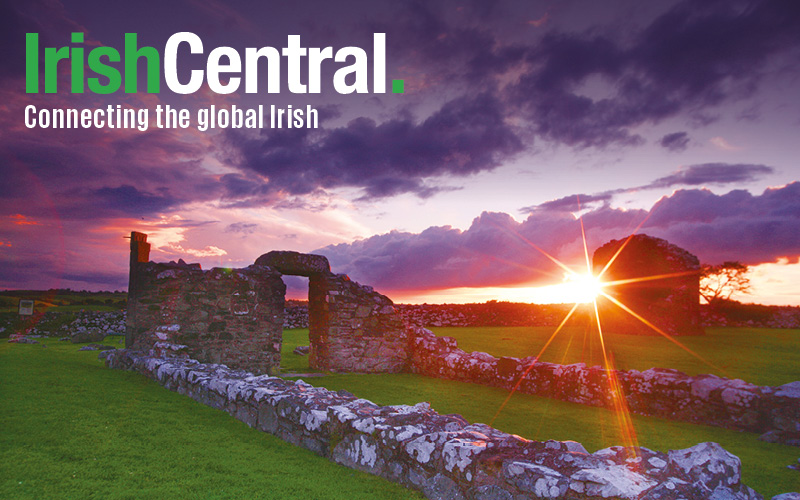The New York Times profiled a small Irish town that has been home for more than a decade to 100 or so Kurdish refugees, settled as part of the UN effort to help those displaced in the chaotic aftermath of the Iraq War.
Carrick-on-Shannon is a place that few Irish people have ever visited. Very few tourists seek out Carrick-on-Shannon , located in Leitrim, the boggy heart of Ireland’s Midlands, and in most ways it is an utterly typical country town of 5,000 inhabitants.
Many eyebrows were raised when the Irish Government announced the Kurds' arrival. Even in the mid-2000’s, when the Celtic Tiger still roared, many were unhappy with the state support the new arrivals were being given, the New York Times reported.
Sister Nora Burke was one woman who went out of her way to help the Kurds settle in and took to visiting one mother every week to help her practice her English.
But she doesn’t believe everyone else was as charitable.
“Carrick-on-Shannon was not prepared,” she explains.
“They just arrived and some in Carrick thought: ‘God, who are these people? Where did they come from? What are they here for?’
“People say to me, ‘Oh, they integrated so well,’” she adds, “but they struggled to no end.”
Read more: 80 Syrian refugees to be housed in small Roscommon town
The number of parents sending their kids to the town’s Irish (Gaelic) language school increased and many were quick to say it had nothing to do with a grá for Irish but the desire of parents to stop their kids mixing with immigrant children.
Some level of division between blow-ins to a parish and locals is an Irish tradition, but a far more important one is the ‘Céad Míle Fáilte’, the ‘Hundred Thousand Welcomes’ and Kajal Allakarami, who arrived age 17, said she could not have felt more welcomed.
“We said it was like heaven when we came,” she recalled. “Maybe it wasn’t our ways, maybe it wasn’t our traditions but the way they respected us was huge.”
Nevertheless, it was a struggle to find work; jobs have never been plentiful in Leitrim, most of the Kurds arrived with imperfect English and it took time to get used to the culture.
For the Amiri family life in Ireland even necessitated a change in gender roles. Mrs Amiri works in a local hotel and pub but her husband, who still struggles with English, stays home to grow potatoes and mind their son, 11 year old Khomar.
Dubbed the “little Irishman” by his mother, Khomar was born not long after the Kurds’ arrival in Carrick and the town is the only home he’s ever known.
The Gaelic Athletic Association has been a lifeline for many of the young Kurds. As in most Irish towns the GAA is at the heart of the community in Carrick-on-Shannon and Zemnako Moradi, who arrived when he was 11, found his talent on the hurling pitch was a big deal. Not only did the GAA help him make friends but it was an important network in the town.
Read more: EU head compares current refugee crisis to Irish immigration to the US
He now lives in Dublin, but he still considers Carrick his hometown. Like so many GAA athletes his life is divided into two parts – work in the city during the week and then a lengthy commute home to practice hurling. That Moradi is also on the Leitrim county team means this is an especially important commitment.
But integrating into the fabric of Irish life was not so easy for other lads his age. Jabar Azizi was a teenager when he arrived and found his new life, “really, really difficult.”
He’s now married, owns his own business and the children he and his wife bounce on their knees will likely never know the horrors of war their parents have.
“They respected us and our religion,” Azizi says of his neighbors.
“They respected the way we wanted to live.”
Five years after he arrived, however, he realized that these initial feelings of respect had turned into something more profound. Azizi's twin brother, Jalal, was out swimming in the Shannon during a rare sunny interlude in the rain of early Irish spring. He got into trouble and drowned.
The death of the 21-year-old shook the town to its core. Reverence for the dead is deeply felt in Ireland and the town pulled out all the stops for the bereaved.
Shops shuttered as the cortege passed by, hundreds attended the funeral and an oak tree was planted in his memory.
“When he passed away, we saw all the community from Carrick-on-Shannon gathering in my house,” Azizi remembered.
“It is something I will never forget in the years to come. It is something I will tell my son about.”




Comments